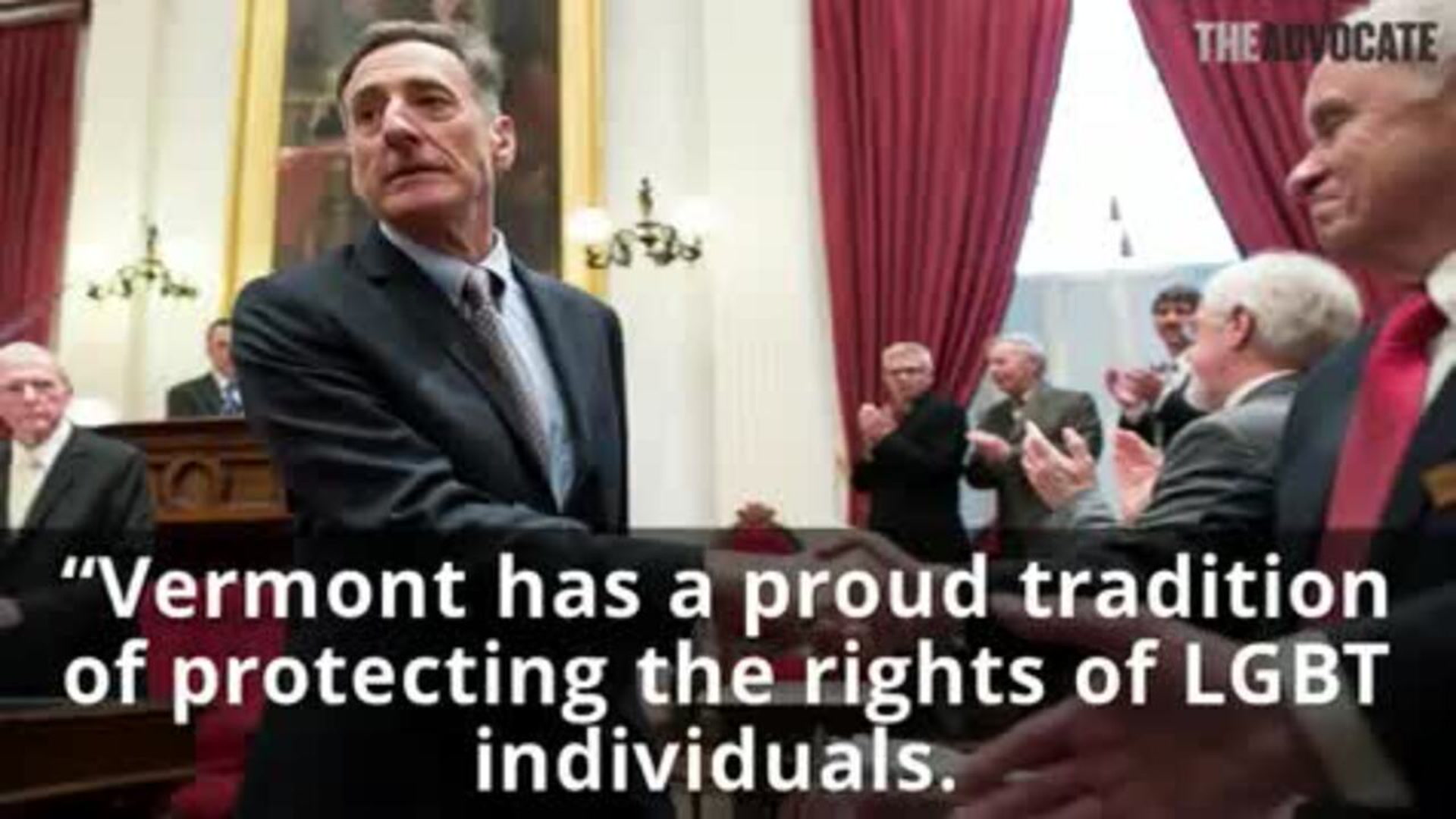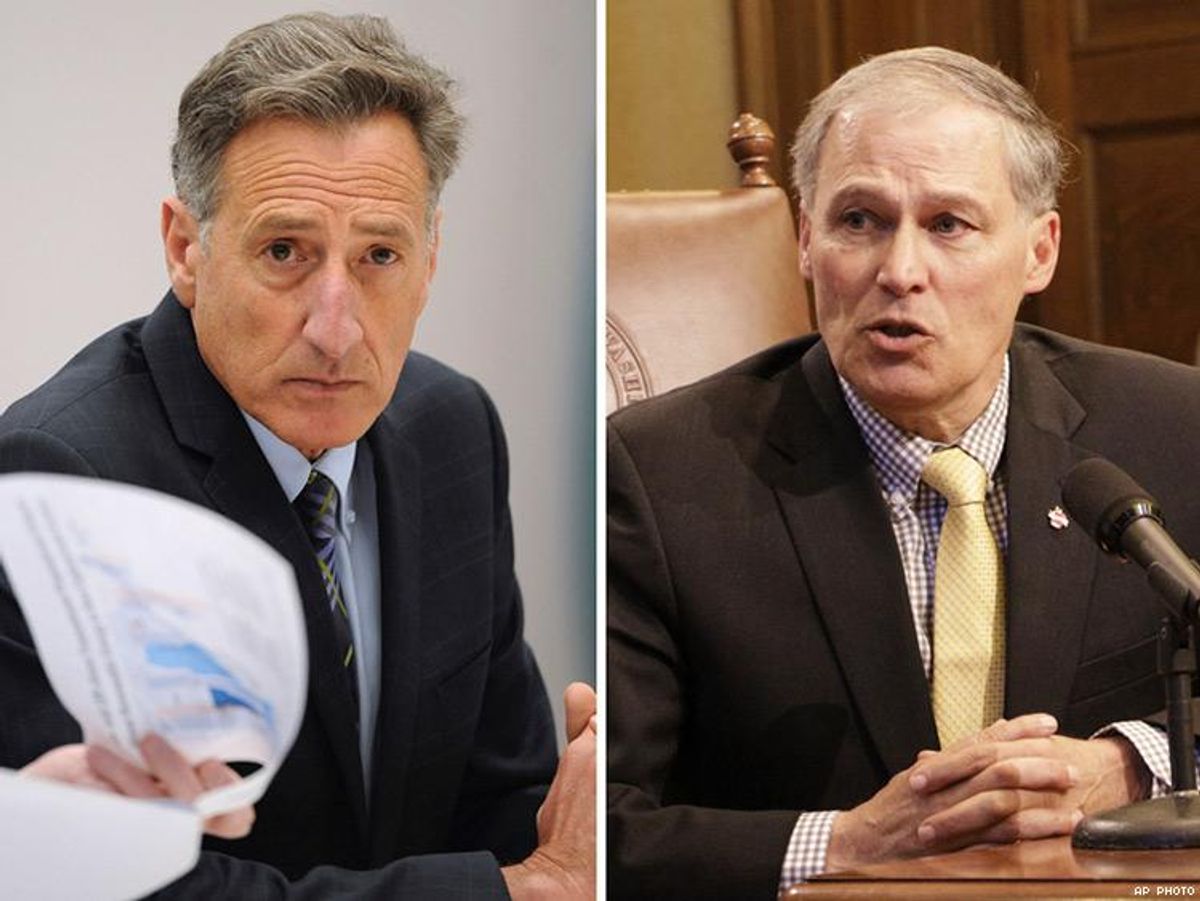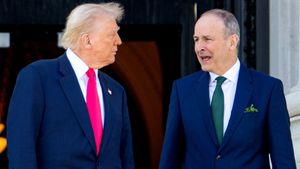All Rights reserved
By continuing to use our site, you agree to our Private Policy and Terms of Use.
Vermont and Washington have become the latest states to join the protest against North Carolina.
In a statement released Tuesday, Vermont Gov. Peter Shumlin announced that the Green Mountain State would be halting "official state travel to North Carolina."
"The law passed in North Carolina is an absolute disgrace," said Shumlin. "Vermont has a proud tradition of protecting the rights of LGBT individuals. I'm making this decision in that tradition."
In an interview Wednesday morning, Washington Gov. Jay Inslee explained that his decision to boycott North Carolina is "consistent with our state's approach to tolerance, fairness, and a lack of discrimination."
This isn't the first time Vermont or Washington State have placed a ban on state-paid travel to protest an anti-LGBT law. Following the passage of Indiana's Religious Freedom Restoration Act in March 2015 -- which allowed businesses to discriminate against gay clientele based on their faith beliefs -- both states announced a travel ban on Indiana. The Washington governor called the ban on travel to North Carolina "mostly symbolic," but acknowledged that "symbolism is important when it comes to ending discrimination in our country."
Last Wednesday, North Carolina passed House Bill 2, a widely criticized piece of legislation that overturns local nondiscrimination ordinances across the state. Rushed through a single, day-long special legislative session, the bill was drafted as a response to Charlotte's City Council enacting trans-inclusive nondiscrimination protections in February.
Trending stories
Equality advocates have called HB 2 "devastating particularly for transgender people," and "an undisguised attack on LGBT people and the efforts of one city to protect gay and transgender North Carolinians against discrimination." The bill forces trans people to use the restroom that corresponds with the sex they were assigned at birth, and it puts them at risk for harassment and -- in many cases -- violence.
In protest of the bill, New York Gov. Andrew Cuomo signed an executive order on Monday that likewise restricts travel to North Carolina by public employees.
"In New York, we believe that all people -- regardless of their gender identity or sexual orientation -- deserve the same rights and protections under the law," wrote Cuomo in a statement. "From Stonewall to marriage equality, our state has been a beacon of hope and equality for the LGBT community, and we will not stand idly by as misguided legislation replicates the discrimination of the past."
Cities including San Francisco, Seattle, and New York City will also be halting non-essential government business with the state.
The Golden Gate City was the first to announce its travel ban. As San Francisco's KGO-TVreports, Mayor Ed Lee announced his city's opposition to the bill last Friday. "We are standing united as San Franciscans to condemn North Carolina's new discriminatory law that turns back the clock on protecting the rights of all Americans including lesbian, gay, bisexual and transgender individuals," he said.
New York Mayor Bill de Blasio made similar remarks at a Monday press conference, in which he also criticized a religious freedom bill in Georgia that has since been vetoed by Gov. Nathan Deal. Following boycotts from major companies like Apple, Disney, and Marvel, Deal announced that he would decline to sign the anti-LGBT legislation into law.
"I think it's quite clear that voices of conscience all over the country are expressing outrage at these decisions which are reinstituting discrimination against the LGBT community," de Blasio said.
Ed Murray, Seattle's openly gay mayor, confirmed that his city would also be protesting HB 2 in a Monday interview with Joel Connelly of the Seattle Post-Intelligencer. "It is my hope for our nation that we do not allow issues of discrimination to divide us," Murray said in a press release on Monday. "Our union is only made stronger when all Americans are treated equitably."
This reaction from city legislators and state governors across the U.S. is similar to the backlash against Indiana's so-called Religious Freedom Restoration Act last year. After Gov. Mike Pence signed RFRA, the governors of Connecticut, New York, and Washington all halted official travel to the Hoosier State. The law, which cost the state an estimated $60 million in boycotts, was later amended to revoke language allowing LGBT discrimination.
Vermont called upon other states to fight North Carolina's anti-LGBT law. "I hope other states will join us in applying pressure on North Carolina to recognize common sense, common decency, and common humanity and repeal this law," Gov. Shumlin said.



















































































